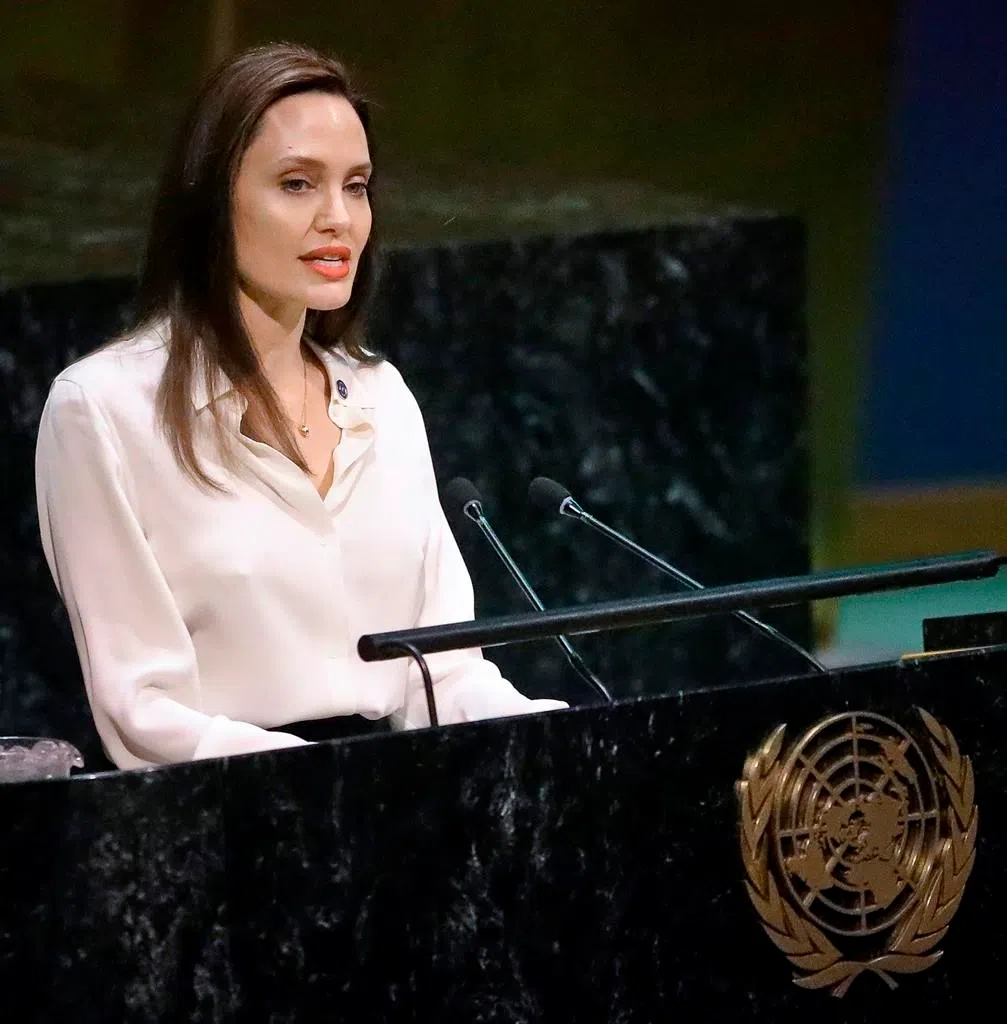
Angelina Jolie: Fighting for women and justice are crucial
Actress and activist Angelina Jolie says promoting equality for women, combatting injustice, and helping refugees are the most important parts of her life after her six children.
“But in many ways, they go hand in hand,” she said in an interview late Friday with The Associated Press. “It’s what I hope my children know is important.”
Off camera, the 43-year-old Oscar-winner is focused on trying to help millions of people caught up in the world’s crises and conflicts, a passion that began in 2001 when she started working for the United Nations refugee agency and travelling to camps for displaced people often in poor developing countries.
“There are simply so many people around the world suffering, and with so little and in so much pain, and to not be spending our time conscious of them and finding solutions for them — it’s an empty life,” she said.


